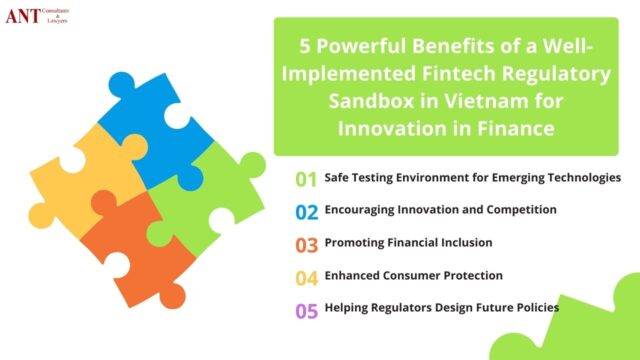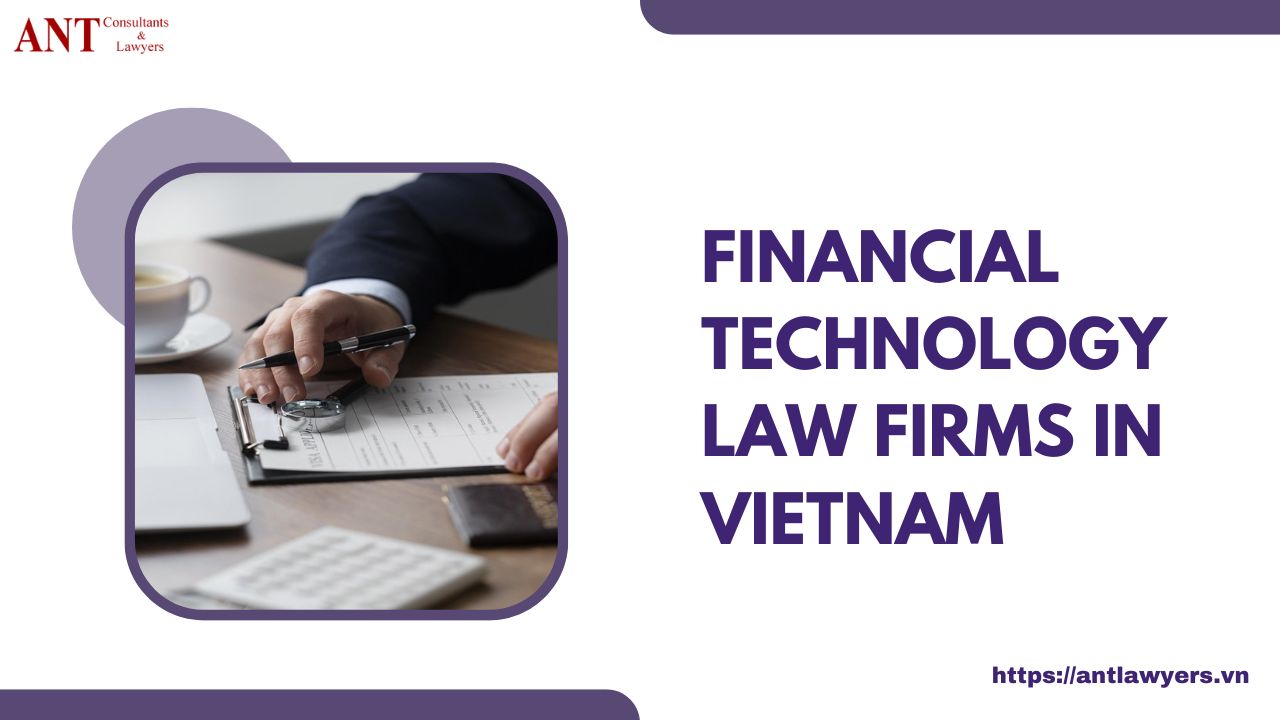The Need for a Fintech Regulatory Sandbox in Vietnam
The banking and financial sectors are undergoing a significant transformation as financial technology, or Fintech, reshapes traditional practices. In response, governments and regulatory bodies worldwide are exploring controlled environments to test new financial technologies. Vietnam does not want to be the outsider hence it is planning to implement the Fintech regulatory sandbox in Vietnam. This sandbox allows for innovative financial solutions to be trialed within a controlled and monitored setting, helping to mitigate risks while fostering innovation.
In Vietnam, the government has recently recognized the importance of establishing a sandbox for the banking sector.
As proposed in recent regulatory documents, Draft Documents on Controlled Mechanism of Fintech Regulatory Sandbox in Vietnam, drafted by the State Bank of Vietnam to the government, the Fintech regulatory sandbox in Vietnam will play a crucial role in enabling financial institutions to innovate safely, especially when adopting technologies like blockchain, artificial intelligence (AI), and peer-to-peer lending.
Based on the above mentioned draft, the following shall explore benefits of a well-implemented Fintech regulatory sandbox in Vietnam in the banking industry, illustrating its potential to revolutionize the sector while maintaining stability and consumer protection.
Benefits of Fintech Regulatory Sandbox in Vietnam
Safe Testing Environment for Emerging Technologies
One of the primary advantages of a Fintech regulatory sandbox in Vietnam is that it provides a safe environment for testing new financial technologies. This controlled setting ensures that Fintech companies and financial institutions can trial their innovations without exposing the wider economy to unforeseen risks.
- For example, peer-to-peer (P2P) lending platforms can be trialed in the sandbox, helping regulators identify potential pitfalls, such as fraudulent activities or unsustainable credit models, before these platforms are widely adopted.
- Technologies like blockchain, used for secure transaction processing, can also be refined in a sandbox setting, ensuring they meet regulatory standards before full-scale deployment.
The Vietnamese government’s approach to implementing a Fintech regulatory sandbox underlines the need to balance innovation with security, particularly in light of recent advances in AI and data analytics. By establishing clear guidelines for participation, the sandbox limits the risks associated with untested technologies.
Encouraging Innovation and Competition
A well-managed Fintech regulatory sandbox in Vietnam does more than protect the banking sector from risk, it also serves as a foundation for innovation and competition. In a highly regulated industry like banking, new entrants often face significant barriers due to stringent regulations and high compliance costs.
The Fintech regulatory sandbox in Vietnam reduces these barriers by offering a streamlined path for innovators to test their products in a real-world environment, although on a limited scale. This opens the door for startups and smaller financial institutions to compete with established players, promoting a healthier competitive landscape.
- With easier entry into the market, smaller Fintech firms can introduce disruptive technologies that challenge the status quo, pushing larger institutions to innovate as well.
- Moreover, the sandbox helps regulators stay ahead of technological advancements, allowing them to adapt legal frameworks that encourage healthy competition without sacrificing consumer protection.
It has been recognized in Vietnam that fostering competition in the Fintech space is vital. The regulatory sandbox model supports this by providing a mechanism through which both local and international players can test their solutions.
Promoting Financial Inclusion
Another significant benefit of the Fintech regulatory sandbox in Vietnam is its potential to promote financial inclusion. Financial exclusion remains a problem in many countries, including Vietnam, where large portions of the population still lack access to basic banking services.
By encouraging the development of new financial products tailored to underserved populations, the Fintech regulatory sandbox in Vietnam helps bridge the gap between traditional banking services and those who need them most.
Solutions like mobile payments, micro-loans, and digital wallets can be refined and tested in the sandbox, ensuring they are accessible, affordable, and secure for users in rural or economically disadvantaged areas.
Vietnam’s emphasis on expanding financial services to remote areas aligns with the goals of its regulatory sandbox. By enabling Fintech innovators to test their solutions in a controlled environment, the country can enhance access to critical financial services, thereby driving broader economic development.
Enhanced Consumer Protection
A key concern for any regulatory body is ensuring the safety and rights of consumers, especially in a rapidly evolving sector like Fintech. The Fintech regulatory sandbox in Vietnam provides a structured environment where consumer protection measures can be rigorously tested and refined.
- Regulatory frameworks within the sandbox ensure that Fintech companies adhere to strict data protection laws, reducing the risks of breaches or misuse of personal information.
- The sandbox also allows for the testing of customer-facing innovations like credit scoring models, ensuring that these tools are transparent and fair before they are implemented on a larger scale.
By allowing regulators to observe how these innovations interact with consumers, the Fintech regulatory sandbox in Vietnam offers an opportunity to refine legal protections and enhance the consumer experience. In Vietnam, where financial literacy is still developing, the sandbox can ensure that new technologies serve customers’ best interests without compromising their financial security.
Helping Regulators Design Future Policies
Finally, the Fintech regulatory sandbox in Vietnam acts as a valuable tool for regulators themselves. As financial technologies evolve at a rapid pace, traditional regulatory frameworks can struggle to keep up. A sandbox enables regulators to observe new technologies in action and develop future-proof policies based on real-world data.
- By closely monitoring the innovations tested in the sandbox, regulators can identify trends and potential risks early, allowing them to create policies that both encourage innovation and mitigate systemic risks.
- The sandbox also provides a collaborative platform where Fintech companies, banks, and regulators can work together to address emerging challenges, such as cyber security threats or the ethical use of AI in financial services.
For Vietnam, this collaborative approach is crucial in ensuring that its Fintech regulatory sandbox in Vietnam remains flexible and responsive to changes in technology and market dynamics. As the country continues to modernize its banking sector, the lessons learned from the sandbox will inform long-term regulatory strategies that support both innovation and financial stability.
The Future of Banking Through Fintech Innovation
The introduction of a Fintech regulatory sandbox in Vietnam is an important step toward fostering innovation, enhancing competition, and improving financial inclusion. By providing a secure environment for the controlled testing of new technologies, the sandbox ensures that Fintech solutions can be developed and implemented responsibly.
The benefits outlined, safe testing, fostering innovation, promoting financial inclusion, enhancing consumer protection, and crafting forward-looking policies highlight the sandbox’s role in driving the future of banking innovation. As Vietnam continues to embrace digital transformation, the Fintech regulatory sandbox in Vietnam will serve as a foundation for a modern, inclusive, and resilient financial sector.
About ANT Lawyers, a Law Firm in Vietnam
We help clients overcome cultural barriers and achieve their strategic and financial outcomes, while ensuring the best interest rate protection, risk mitigation and regulatory compliance. ANT lawyers has lawyers in Ho Chi Minh city, Hanoi, and Danang, and will help customers in doing business in Vietnam.
How ANT Lawyers Could Help Your Business?
You could reach ANT Lawyers in Vietnam for advice via email ant@antlawyers.vn or call our office at (+84) 24 730 86 529




